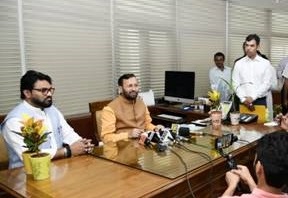The last two decades have been instrumental in reshaping India’s economy. And the telecom sector has played a pivotal role in this transformation. From being voice dominated to data-centric, India’s telecom sector with over 1.17 billion connections has ensured businesses acquiring new capabilities, consumers obtaining new, exceptional services and resources. The industry is now keenly looking at the launch of 5G services to enter the next growth phase.
India’s top telecom operators have recently announced their plans to launch 5G this year. While Bharti Airtel has recently tested its live 5G network in Hyderabad using 1800 MHz spectrum, last year, Reliance Jio too had revealed its plans to launch 5G in the latter half of 2021 using standalone architecture.
There has been an upward trajectory of the learning curve, which has significantly helped the telecom sector attract global investments. Even during the COVID-19, the telecom sector, with its profound penetration of low-cost data and voice calls, kept the economy afloat and built necessary resilience. However, the 5G technology in India could realistically take at least a couple of years to make its emergence felt. (See: Tipping point for 5G networks likely in 2023, says Report)
When introduced, 5G is likely to unleash the power of technologies such as artificial intelligence (AI), augmented reality (AR), virtual reality (VR), and the internet of things (IoT) to bring an altogether new era of hyper-user experience.
Laying the foundation for 5G success
Much of the 5G’s future in India would be dependent on the Indian government’s plan to leverage it for smart city services such as automating traffic signaling, street lighting, smart parking, real-time public transport information, and nursing public infrastructure through drones.
Unlike previous wireless standards, 5G needs a well-conceived industrial strategy. Many organizations are still grappling with limited device availability, policies and regulations, overhauling security architectures, and restricted use case success to form a concrete strategy around 5G.
While the Indian telcos may have set ambitious targets to be ready for commercial 5G services by the end of this year, the leap would be challenging, especially in the consumer segment, unless there is a broader range of affordable 5G devices are available.
Besides, the telecom operators, sitting on razor-thin margins, would need cost-effective but quality gear to support the new networks. This requirement could be well-supported by several flagship schemes launched by the Indian government, such as Digital India and Make in India.
Another crucial area for the success of 5G is the efficient and more customer-centric business models for enterprises. The fabric of business processes could get a turbo boost from AI-driven IoT.
While businesses are keen to know about the potential of 5G, they need to be made aware of the specific advantages offered by 5G compared to the legacy wireless technologies such as 4G and Wi-Fi. Telcos will need to demonstrate the successful use cases driven by 5G and its applicability in the Indian market. Otherwise, there is a fear that many enterprises could only see this up-gradation as an incremental improvement, which is not the case. (See: Here’s how 5G could be a catalyst for IIoT and Industry 4.0)
Resolving the telco’s dilemma
The immediate twelve months after the launch of 5G in India will be heavily focused on managing the cost and complexity of building out 5G networks, spectrum slabs, new revenue generation methodologies, and return on investment (RoI) for telecom operators.
They will also be under tremendous pressure to reimagine themselves as digital service providers while keeping a check on their operating expenses. From a user standpoint, considering the Indian economy’s price-conscious nature, telecom companies would need to reasonably launch their products and services without losing the quality quotient.
A well-crafted strategy, investment in new tools and network modernization, and comprehensive government policies will play a crucial role in addressing several of the above issues.
Learning from the global successes
In 2021, both enterprises and telecom service providers will be focusing on maintaining network services, deploying remote network monitoring solutions, expanding internet services, and undertaking research and deployments of global delivery centers.
The Indian government is also needed to develop innovative policy solutions to find the right spectrum price for forthcoming 5G auctions. Another most desirable attribute for 5G success is the availability of end-to-end solutions. Globally, many IoT-related developments are underway in remotely operated robotic surgeries, driverless vehicles, and several other connected devices and applications. India is likely to learn from the immersive experiences of global markets.
Moreover, telecom service providers will need further to develop their app ecosystems and partnerships with OTT players to garner more subscribers and ARPUs.
5G is likely to enable the next wave of industrial transformation with automated supply chain models and orchestration. However, the CIOs would look forward to lucid 5G plans from the telecom service providers rather than the transactional deliberations to achieve substantial outcomes from AI and IoT implementations.







0 Comments